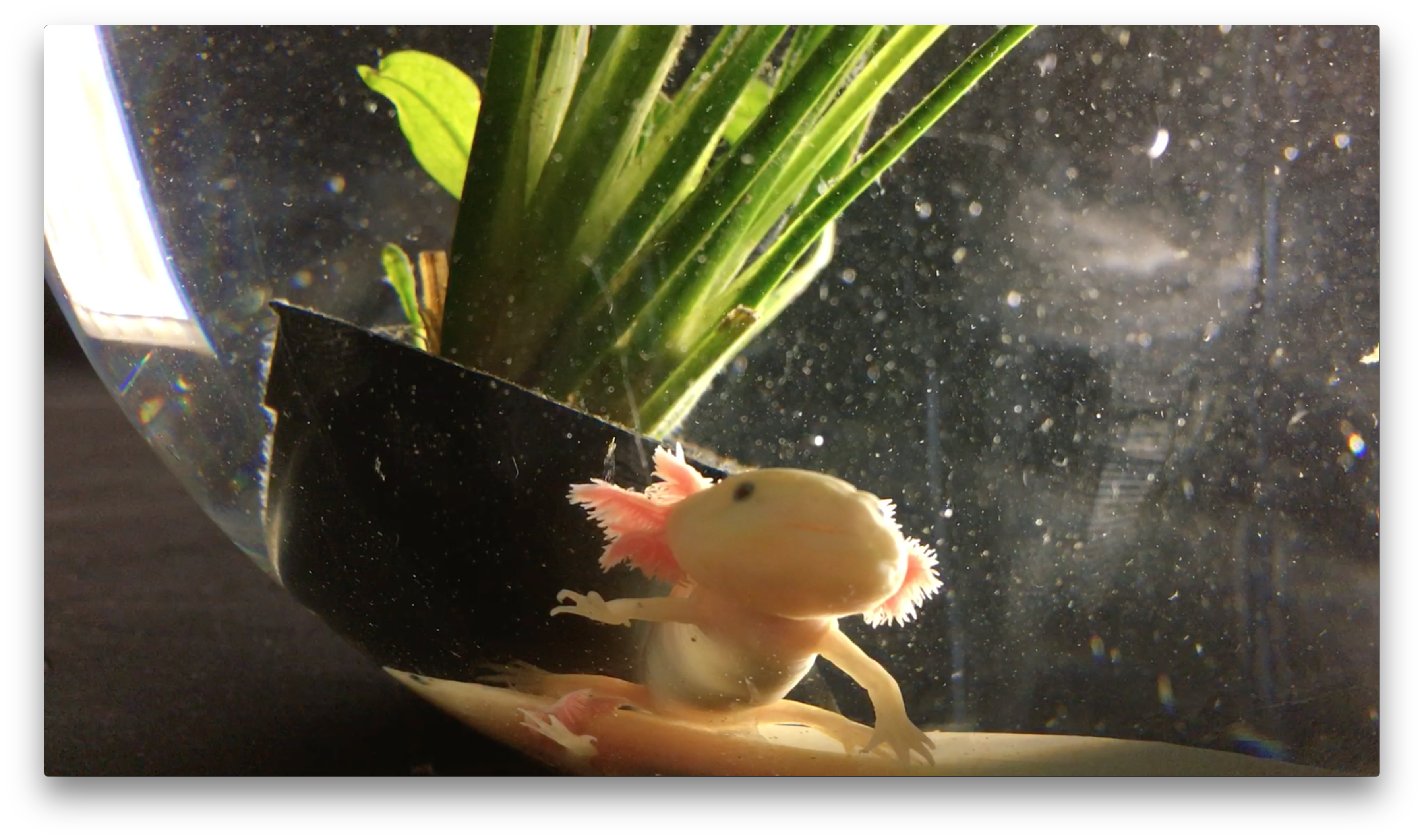
IN LOVING MEMORIAM ~ AXOLOTL GAIA (2015-2016)
JOSEPHINE:
At last, I will stop blending my convictions into the voices of my protagonists and use my own voice. During the process of writing the stories of the Gardener, the Cavewoman and the Witch, I noticed it was more natural to let them talk. The words were fluid. At the same time, I was able to contemplate on weightier subjects, and give them saturated convictions which were occasionally hyperbolic and ironic. They have been my vehicles to transmit certain ideas, while sometimes the words took their own direction and transported me to unforeseen routs. For now, I will not talk about the actual content of the tragic allegory to mother Gaia, but more what the structure around it has come to imply for me.
I would like to believe it is not solely a shape of escapism, that makes it perhaps easier to hide behind fictional fantasies. This allegory has been much more a mode to comprehend the reality better by using imagination, just like the Cavewoman is describing this method in her talk. The actual concrete of the road my vehicles were moving themselves on, the frame of the story, seems to disclose a general tendency I lately have started to notice around me more, but which is already in motion for decades: The fantasy of the universes of the Gardener, the Cavewoman and the Witch, has been just one of the many extensions of what is happening in contemporary media. A clear distinction of the real and the imagined is blurred and depiction of magical stories seems to be more present than ever. Mythopoeia, fantasy, different modes of consciousness, disembodiment and alienation are omnipresent in our destabilized reality. Legendary examples as J. K. Rowlings Harry Potter and Tolkien are still relevant - but also series such as Game of Thrones which holds so many people under its spell. A century ago a case of disenchantment was current, caused by secularism, the negative associations of organized religion and rationalism. Now the re-enchantment of the world is overwhelmingly present.
In Western Society we are individually looking for new energies to believe in. Here we want spirituality29 to be completely distinguished from religion. We create our own supernatural from natural spiritual experiences. Open-ended, in solitariness of the individual. We are perpetually tasting all different flavours, through meditation, solitude, mystical ecstacy and freedom. Perhaps we can talk of Designer Gods, where one can merge all sorts of existing spiritual paths to shape its own.
Well aware of the fact that we prefer to use solely our mind when we are under pressure, the tendency is rising to give more attention to our intuition. Although I do believe that there should not be a clear distinction between rationality and spirituality. Ultimately, they are working in conjunction. Still it may be the time that the dominance of exclusively rational thought is diminishing. The interest to advance the capacity of the intuitive skills, to appreciate the sea within us, is expanding. Concluding this thought stream, I am suspecting this allegorical story to mother Gaia is also an homage to our spirits.
29 Paradoxically, before 1800 spirituality was also used as a term in opposition materiality. Spirit was metaphysical, materiality physical. The matter and the spirit. However, as all things become products of consumption, also spirituality is often accompanied by all sorts of purchasable objects which are needed to fulfill one’s spiritual path. Well, I am going of topic but it stays some food for thought for now. Topic talked about in Spiritual but Not Religious, Amy Hollywood, Harvard Divinity Bulletin, 2010
